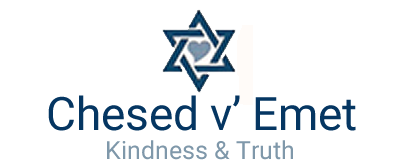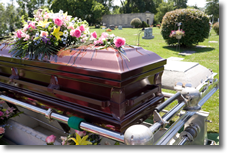It is not at all unusual for people to plan for their financial future and there are many ways. Life insurance, wills, trusts, and estates are just some of the many vehicles people use to protect their assets. An important part of planning for the future should include the discussion of what you and your […]
Funeral Customs
There are many denominations of Judaism such as Orthodox, Conservative, Reform, Reconstructionist, and Humanistic. I don't really do not like using the term “Orthodox” when talking about Jewish funerals. I prefer the term “Traditional.” Over the years, I have found that when people hear the word, “Orthodox” many imagine things that aren't accurate or that since they themselves (or the deceased) isn't Orthodox, they can't observe the customs of the faith. The following information is based on what a “Traditional” Jewish funeral is. Once these customs are understood, families can make choices that meet their needs. Chesed v'Emet serves families of all levels of Jucaic observance and will customize a service that is dignified, personalized, and designed to be a meaningful experience.
Death Benefits
There are benefits that may be available to a family at the time of death but are subject to periodic change. We can help advise you about the current benefits and whether you or your family qualify. Chesed v’Emet will assist in filing for and obtaining any benefits to which you may be entitled. (Public […]
Selection of a Cemetery
Many times a family is faced with a sudden unanticipated death and they do not have cemetery property. Chesed v’Emet can help you make the necessary arrangements for purchasing a grave. The selection of a cemetery is one that should not be made in haste. There are many factors to be considered before a final […]
Visiting the Grave
Judaism teaches that mourners should not show excessive grief and should try to avoid deifying the deceased. To this end, cemetery visitation should not be too frequent. Some authorities have said that the first time a mourner can return to the grave is after Shloshim, while others say a mourner may visit the grave at […]
Unveiling/Dedication of Marker
Although there is nothing in Traditional Judaism that requires an unveiling or dedication service, most families choose to have some sort of ceremony when the grave marker or headstone is put in place. We are required by Tradition to mark the grave of a deceased and the most common time for this to take place […]
Yarzheit
The annual anniversary of the death of a person is called the Yarzheit and is traditionally observed based on the Hebrew calendar. Chesed v’Emet sends a reminder in the mail a few weeks before the Yarzheit. The Yarzheit is observed by lighting a twenty-four hour candle the evening before the day of the Yarzheit. Most people recite the Kaddish and take […]
Shloshim, The Next Period of Mourning
Shloshim, which means thirty in Hebrew, are the thirty days following the burial, with the day of the burial counting as the first day. Usually then, Shiva is the first seven days of Shloshim. As with Shiva, some festivals affect the Shloshim period and your rabbi will advise you as to how a festival impacts your particular situation. At the conclusion […]
Shiva, The First Period of Mourning
Shiva means seven and is the period of mourning immediately following the burial. The day of burial counts as the first day of Shiva, and continues seven days. Although no public mourning is observed on Shabbat, the Sabbath and Holidays count in the seven days. Many festivals affect the observance Shiva and your rabbi will be best qualified to explain […]
Following the Burial
There are many customs and traditions, many based on superstition, that surround the return from the cemetery. Because many of these are just that, customs, it is best to discuss these with your rabbi. Some of the customs Jewish people observe are: covering the mirrors in the house of mourning, having a pitcher of water […]
The Burial
The Tradition is that the Kaddish prayer is not recited until after the casket has been lowered and the grave filled. Dating back to Biblical times, the preference for Jewish people has been earth burial and that custom remains strong today. In some parts of the country, above ground mausoleum entombments are popular. Families who […]


